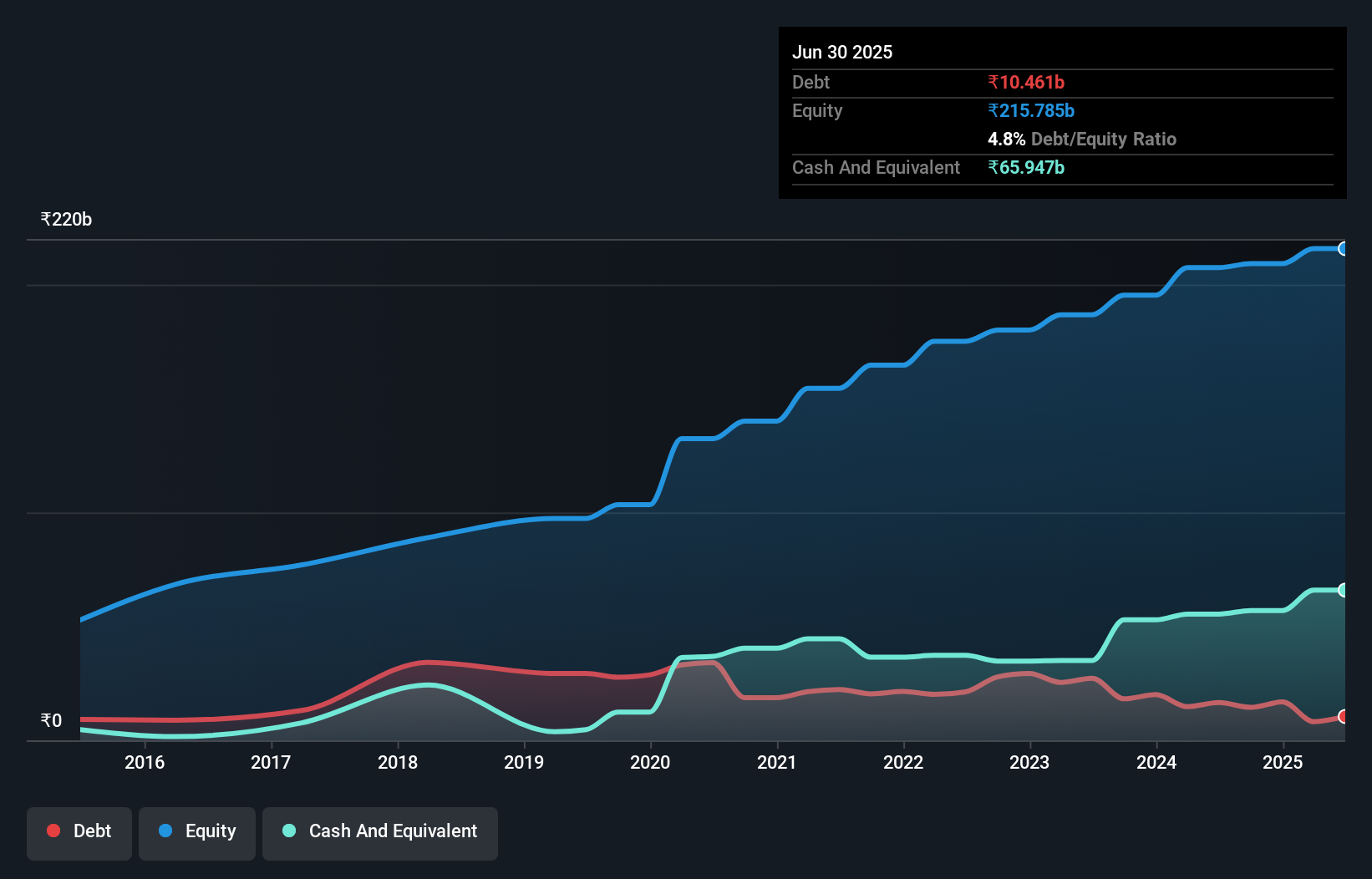David Iben put it well when he said, 'Volatility is not a risk we care about. What we care about is avoiding the permanent loss of capital.' It's only natural to consider a company's balance sheet when you examine how risky it is, since debt is often involved when a business collapses. As with many other companies Shree Cement Limited (NSE:SHREECEM) makes use of debt. But is this debt a concern to shareholders?
When Is Debt A Problem?
Generally speaking, debt only becomes a real problem when a company can't easily pay it off, either by raising capital or with its own cash flow. Part and parcel of capitalism is the process of 'creative destruction' where failed businesses are mercilessly liquidated by their bankers. While that is not too common, we often do see indebted companies permanently diluting shareholders because lenders force them to raise capital at a distressed price. Having said that, the most common situation is where a company manages its debt reasonably well - and to its own advantage. When we examine debt levels, we first consider both cash and debt levels, together.
What Is Shree Cement's Net Debt?
You can click the graphic below for the historical numbers, but it shows that Shree Cement had ₹10.5b of debt in March 2025, down from ₹16.6b, one year before. However, its balance sheet shows it holds ₹65.9b in cash, so it actually has ₹55.5b net cash.

How Strong Is Shree Cement's Balance Sheet?
According to the last reported balance sheet, Shree Cement had liabilities of ₹57.6b due within 12 months, and liabilities of ₹11.6b due beyond 12 months. On the other hand, it had cash of ₹65.9b and ₹27.0b worth of receivables due within a year. So it can boast ₹23.8b more liquid assets than total liabilities.
This surplus suggests that Shree Cement has a conservative balance sheet, and could probably eliminate its debt without much difficulty. Succinctly put, Shree Cement boasts net cash, so it's fair to say it does not have a heavy debt load!
View our latest analysis for Shree Cement
The modesty of its debt load may become crucial for Shree Cement if management cannot prevent a repeat of the 38% cut to EBIT over the last year. When a company sees its earnings tank, it can sometimes find its relationships with its lenders turn sour. When analysing debt levels, the balance sheet is the obvious place to start. But it is future earnings, more than anything, that will determine Shree Cement's ability to maintain a healthy balance sheet going forward. So if you want to see what the professionals think, you might find this free report on analyst profit forecasts to be interesting.
Finally, while the tax-man may adore accounting profits, lenders only accept cold hard cash. Shree Cement may have net cash on the balance sheet, but it is still interesting to look at how well the business converts its earnings before interest and tax (EBIT) to free cash flow, because that will influence both its need for, and its capacity to manage debt. In the last three years, Shree Cement created free cash flow amounting to 5.3% of its EBIT, an uninspiring performance. For us, cash conversion that low sparks a little paranoia about is ability to extinguish debt.
Summing Up
While we empathize with investors who find debt concerning, you should keep in mind that Shree Cement has net cash of ₹55.5b, as well as more liquid assets than liabilities. So we are not troubled with Shree Cement's debt use. The balance sheet is clearly the area to focus on when you are analysing debt. However, not all investment risk resides within the balance sheet - far from it. Case in point: We've spotted 1 warning sign for Shree Cement you should be aware of.
If you're interested in investing in businesses that can grow profits without the burden of debt, then check out this free list of growing businesses that have net cash on the balance sheet.
New: Manage All Your Stock Portfolios in One Place
We've created the ultimate portfolio companion for stock investors, and it's free.
• Connect an unlimited number of Portfolios and see your total in one currency
• Be alerted to new Warning Signs or Risks via email or mobile
• Track the Fair Value of your stocks
Have feedback on this article? Concerned about the content? Get in touch with us directly. Alternatively, email editorial-team (at) simplywallst.com.
This article by Simply Wall St is general in nature. We provide commentary based on historical data and analyst forecasts only using an unbiased methodology and our articles are not intended to be financial advice. It does not constitute a recommendation to buy or sell any stock, and does not take account of your objectives, or your financial situation. We aim to bring you long-term focused analysis driven by fundamental data. Note that our analysis may not factor in the latest price-sensitive company announcements or qualitative material. Simply Wall St has no position in any stocks mentioned.
About NSEI:SHREECEM
Shree Cement
Engages in the manufacture and sale of cement and clinker in India and internationally.
Flawless balance sheet established dividend payer.
Similar Companies
Market Insights
Community Narratives



